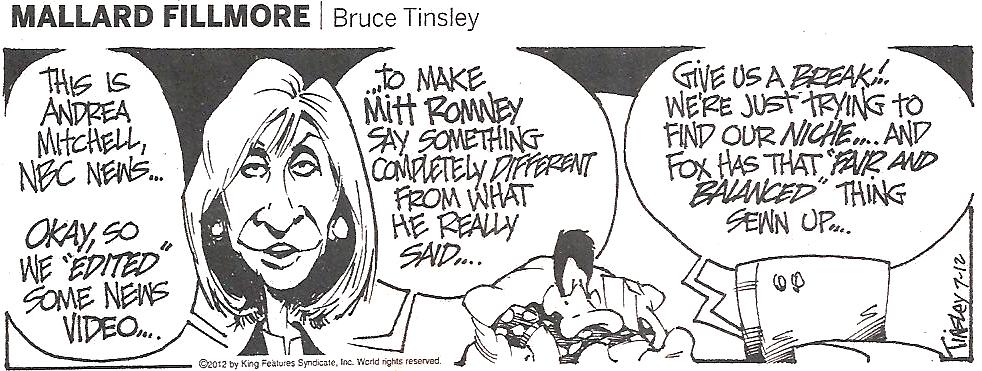A free and independent press has long been held as essential in a democratic society; to wit, freedom of expression and assembly are protected by the First Amendment to the U.S. Constitution.
New media – information or ammunition?
From the San Jose Mercury News, July 12, 2012

Online and broadcast media have overtaken printed magazines and newspapers as the dominant source of information to the public. At the same time, financial pressures have lead to a decline in the quality of traditional news media. Unvetted information abounds, so the responsibility has fallen to the individual to determine the validity of what he or she believes. The result, according to Bill Keller, former executive editor of the New York Times, is that we consumers can “easily assemble an information diet that simply confirms [our] prejudices.”
The ease of finding media sources to support almost any position has diluted the force of the better argument. Controversial content shared with people holding opposing views does little but annoy them and generate either no response or a salvo of counterpoint content and a self-perpetuating cycle of polarizing “non-communications.”
News, opinion, or propaganda?
- Tax reform views
Critical analysis of Republican proposals
Republican plan and criticism of Obama - Two sides the Patient Protection and Affordable Care Act of 2010
Know the truth about the Government Health Care Bill
Health Action Now video by AARP - Government regulation of financial markets
Less is better
Benefits of regulation
How does propaganda work?
Technical explanation by Cognitive Policy Works using as an example news reports of the 2011 shooting of Gabrielle Giffords

Henrik Ibsen ~ Castles in the air – they are so easy to take refuge in. And so easy to build too.